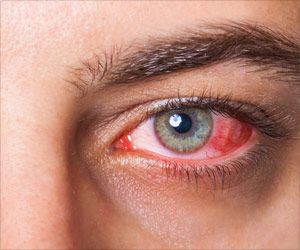
Ayurveda, with its holistic approach, offers comprehensive treatments for various eye diseases, emphasizing not just the eye itself, but its connection to the overall bodily balance (doshas), digestion (Agni), and mental well-being. Eye diseases (Netra Rogas) are broadly categorized in Ayurveda based on the affected part of the eye, the predominant dosha, and the severity.
Ayurvedic understanding of Eye Diseases: According to Ayurveda, the eyes are primarily governed by Pitta Dosha, especially the ‘Alochaka Pitta’ sub-dosha, which controls vision and light perception. However, imbalances in Vata (leading to dryness, degenerative conditions, pain) and Kapha (leading to excessive tearing, blockages, heaviness, infections) can also significantly impact eye health. Imbalance in all three doshas (Sannipataja) can lead to more complex and severe conditions. Ama (toxins) and weak Agni (digestive fire) are also considered underlying factors.
The Ayurvedic treatment aims to:
- Balance vitiated Doshas (especially Pitta, Vata, and Kapha).
- Strengthen Alochaka Pitta.
- Cleanse and detoxify the eyes and surrounding structures.
- Improve microcirculation to the eyes.
- Nourish eye tissues.
- Protect eyes from external factors.
- Address underlying systemic health issues (e.g., diabetes, hypertension, thyroid).
Here’s a detailed overview of Ayurvedic treatment approaches for eye diseases:
I. Shodhana (Panchakarma – Detoxification and Purification Therapies): Panchakarma therapies are highly beneficial for chronic and degenerative eye conditions, as they deeply cleanse the body, remove Ama, and restore doshic balance, which reflects in improved eye health.
- Netra Tarpana (Eye Bath/Retaining Medicated Ghee):
- Description: This is a key specialized eye treatment. A well-like structure made of black gram flour dough is placed around the eyes, and lukewarm medicated ghee (e.g., Triphala Ghrita, Jeevantyadi Ghrita) is poured into it, covering the eyes completely. The patient is instructed to open and close their eyes for a specific duration.
- Benefits: Deeply nourishes and lubricates the eyes, strengthens eye muscles, improves vision, reduces dryness, eye strain, and fatigue. It’s highly beneficial for conditions like dry eyes, computer vision syndrome, refractive errors, early cataracts, glaucoma, and degenerative retinal conditions.
- Netra Dhara (Eye Wash/Pouring Medicated Decoction):
- Description: A continuous stream of medicated herbal decoctions or lukewarm water is poured over the eyes from a specific height.
- Benefits: Cleanses the eyes, reduces irritation, redness, and inflammation. Useful for conjunctivitis, eye strain, allergic reactions, and cleansing before or after other eye therapies.
- Anjana (Collyrium/Medicated Eye Paste Application):
- Description: Medicated paste or powder (e.g., Triphala Anjana, Eladi Anjana) is applied to the inner surface of the lower eyelid.
- Benefits: Cleanses accumulated impurities from the eyes, reduces Kapha (excess mucus/discharge), improves clarity of vision, and stimulates tear secretion.
- Aschyotana (Eye Drops/Instillation):
- Description: Instillation of a few drops of medicated herbal liquids (e.g., rose water, honey-based preparations, or specific herbal eye drops) into the eyes.
- Benefits: Reduces irritation, inflammation, redness, and helps cleanse the eyes. Used for various inflammatory conditions.
- Pindi (Herbal Poultice):
- Description: A small poultice of powdered herbs tied in a cloth is placed over the closed eyelids.
- Benefits: Reduces swelling, pain, and inflammation.
- Shirodhara:
- Description: Continuous pouring of warm medicated oil or buttermilk over the forehead.
- Benefits: Calms the nervous system, reduces stress, and improves circulation to the head and eyes, indirectly supporting eye health. Beneficial for eye strain and headaches related to eye conditions.
- Nasya (Nasal Administration):
- Description: Instillation of medicated oils (e.g., Anu Taila, Shadbindu Taila) or ghrita into the nostrils.
- Benefits: Helps clear channels in the head, improves circulation to the eyes, and balances Vata and Kapha affecting the head and eyes. It is particularly useful for conditions linked to sinus issues or allergic reactions affecting the eyes.
- Virechana (Therapeutic Purgation):
- Description: Medically induced purgation.
- Benefits: Especially useful if eye diseases are linked to Pitta aggravation or systemic Ama, as it detoxifies the body, particularly the liver (which is closely associated with eye health in Ayurveda).
II. Shamana (Palliative Therapies & Herbal Medicines): These involve internal medications to support eye health, improve vision, and address specific conditions.
- Herbs for Eye Health (Netra Rasayanas):
- Triphala (Amalaki, Bibhitaki, Haritaki): Most popular. Excellent for detoxification, digestion, and strengthening eye tissues. Can be taken internally as powder or decoction, and used for eye washes.
- Amalaki (Indian Gooseberry): Rich in Vitamin C, antioxidant, rejuvenative for eyes, balances Pitta.
- Bhringaraj (Eclipta alba): Supports overall head health, including eyes, reduces Pitta.
- Yashtimadhu (Licorice): Soothing, anti-inflammatory, good for Pitta and Vata related eye irritation.
- Shatavari (Asparagus racemosus): Nourishing and cooling, balances Pitta and Vata, beneficial for dry eyes.
- Punarnava (Boerhavia diffusa): Diuretic, anti-inflammatory, reduces swelling and fluid retention in the eye area.
- Guduchi (Tinospora cordifolia): Immunomodulator, detoxifier, reduces inflammation.
- Neem (Azadirachta indica): Anti-inflammatory, anti-bacterial, useful for infectious eye conditions.
- Classical Formulations:
- Triphala Ghrita / Mahatriphala Ghrita: Medicated ghee, taken internally and used for Netra Tarpana. Highly beneficial for vision improvement and eye diseases.
- Saptamrita Loha: A herbo-mineral formulation beneficial for eye strength and vision.
- Chakradhwaj Rasa, Swarna Makshika Bhasma, Praval Pishti: Specific preparations used for certain eye conditions (under expert guidance).
- Chyawanprash: Overall rejuvenative and immune booster, indirectly supports eye health.